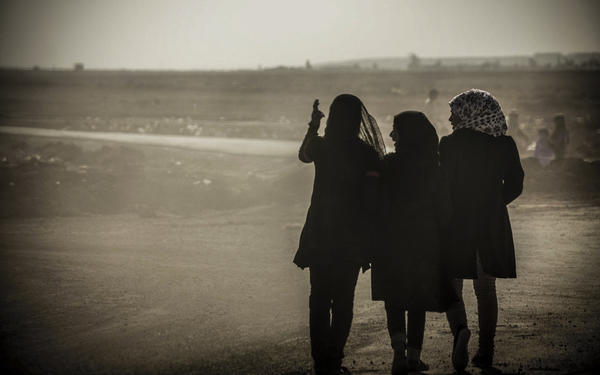Supporting refugees around the world
A new book published last month by Cambridge University Press shines a timely and important light on the situation of refugees across the globe.

25 Million Sparks: The Untold Story of Refugee Entrepreneurs takes readers inside the Za’atari refugee camp to tell the story of three courageous Syrian women entrepreneurs.
Beginning in Za’atari – which is home to almost 80,000 refugees fleeing the war in Syria – the book goes on to explore the broader phenomenon of refugee entrepreneurship in more than 20 camps and cities around the world.
“Unlike most treatments of refugees as hopeless victims, 25 Million Sparks celebrates their resilience, ingenuity and strength – though without understating the precariousness of their situation,” said Cambridge University Press senior commissioning editor, Valerie Appleby.
The term refugee is defined by Cambridge Dictionary as ‘a person who has escaped their own country for political, religious, or economic reasons or because of war’. The number ‘25 million’ in the book’s title refers to the number of refugees around the world when the book was being written. By the end of 2021, that number had risen to 27.1 million and it continues to grow.
The author, Andrew Leon Hanna, is a first-generation Egyptian-American, a Scholar at Stanford Graduate School of Business, and the co-founder and CEO of DreamxAmerica – a social enterprise that supports immigrant, refugee and first-generation entrepreneurs.
Speaking on the current global refugee crisis in an interview with the Cambridge University Press team, Hanna said: “Now is a pivotal moment for the world to recommit itself to resettling and investing in refugees.”
Hanna’s passion and commitment to improving refugees’ lives is reflected in his decision to make a charitable donation of author royalties to the Za’atari camp, which Cambridge University Press is also matching.
Each year on 20 June, the world is encouraged to celebrate and honour the strength and courage of refugees across the globe. 25 Million Sparks embodies the spirit of World Refugee Day in its aim to build empathy and understanding, and to recognise the resilience of refugees in rebuilding their lives.
Helping teachers and learners in challenging circumstances
Around 75 million children have their education interrupted each year due to conflict, emergency and disaster. Cambridge University Press & Assessment has done a great deal of work to provide support for teachers, learners and researchers in challenging circumstances, and published books on the topic. This includes:
- Award-winning Cambridge University Press title ‘Teaching in Challenging Circumstances’, which draws on academic and professional research to provide practical guidance for teachers in areas with growing numbers of refugees or displaced people. You can read more about the book in this interview with the author, Chris Sowton.
- The recent relaunch of Volunteering with Refugees, our award-winning free course developed in collaboration with The Human Hive, which trains volunteers and language teachers in the skills needed to support the social and linguistic needs of refugees.
- The important work of our teams in projects such as the delivery of a teaching and learning programme for Rohingya refugee children, in partnership with UNICEF, which aims to improve the education of hundreds of thousands of vulnerable children.
- The Learning Passport - an ambitious partnership between the University of Cambridge, UNICEF and Microsoft which aims to improve the education of millions of vulnerable children who face barriers to learning because of poverty, discrimination, conflict and disaster. The Learning Passport platform is underpinned by curriculum frameworks developed by experts from Cambridge University Press & Assessment and the academic university to cover maths, science and literacy.
- Free access to a curated collection of the latest related Cambridge University Press book chapters and journal articles for World Refugee Day and Refugee Week (until 31 July 2022).
The ongoing conflict in Ukraine has disrupted the education of all 7.5 million children who were living in the country at the beginning of this year. According to Ukraine’s Ministry of Education and Science, almost 2,000 education institutions have suffered bombing and shelling, with around one in 10 destroyed completely. To help:
- Our colleagues in Cambridge Partnerships for Education are working to support a smooth transition for Ukrainian children into other education systems by mapping the Ukrainian curriculum to the education systems of countries receiving refugees, starting with maths in partnership with Cambridge Mathematics. These maps can be provided to teachers to help them understand where their new Ukrainian students may be on their learning journeys, compared to their usual class cohorts, and where there may be differences in sequencing. This exercise should also help in supporting children returning from different education systems back to Ukraine in the future too.
- Our international exam board is working with schools throughout Eastern Europe to support progression and assessment for displaced students and teachers, and our English language learning team are creating online communities for Ukrainian teachers.
Find out more about our support for Ukrainian teachers, learners and researchers.
For further reading, our Cambridge University Press Bookshop team have also put together a list of book recommendations for World Refugee Day and Refugee Week.
